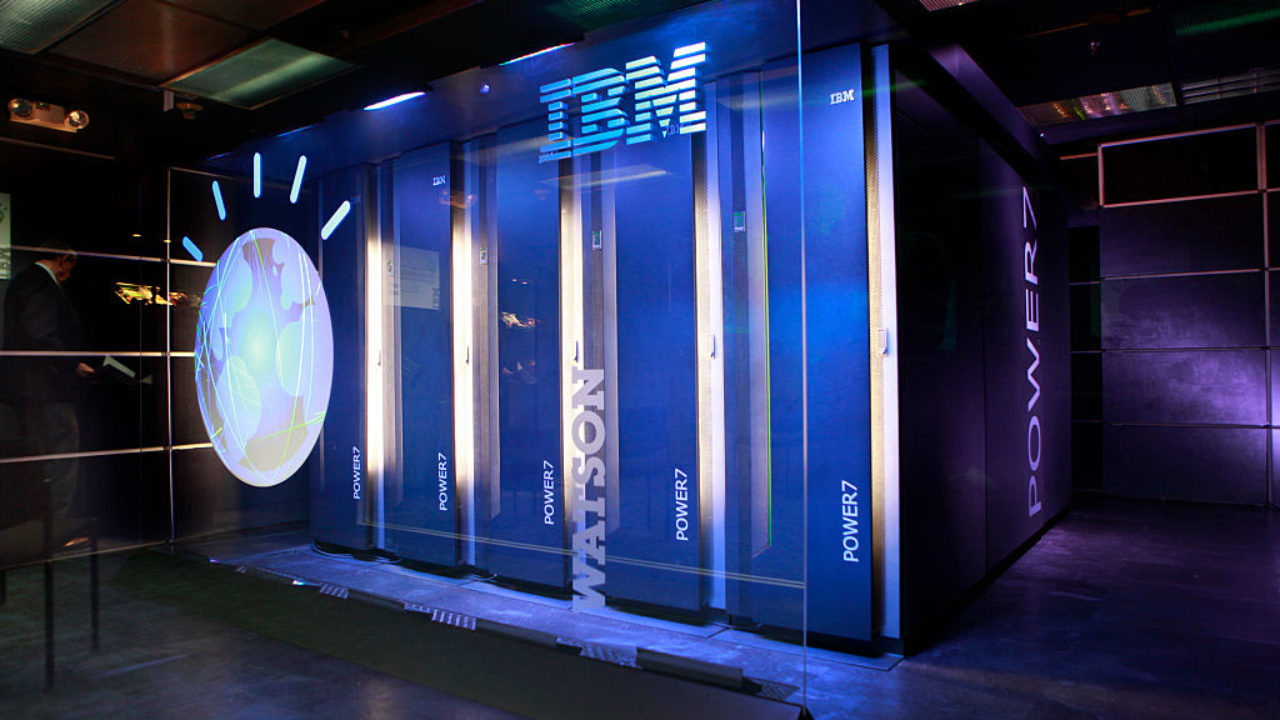
Using artificial intelligence is one of the key ways to improve your business. Facial recognition is already being used in airports for passport control, and retinal examination is one application of this technology. Focused personalisation allows companies to better understand their target market and create future product offerings by using detailed usage data. The way search engines present results online will also be improved by machine learning. It will be possible to train algorithms that can recognize what people say and what they are seeing.
Machine learning
The term machine learning derives its name from the early AI community. It was an attempt to apply the principles and techniques of artificial intelligence in solving human problems. The term machine learning was first used by early AI enthusiasts for algorithms that could recognize patterns, make predictions and make predictions from data. Deep learning algorithms, or artificial neural networks, have been the focus of much attention in recent years. These tools can solve complex problems such as distinguishing between a dog from a fox.
Deep learning
In the last decade, AI has seen a lot of changes. Machine learning is at forefront of this transformation. Machine learning makes it possible to make better decisions with less effort. AI systems do not depend on one programmer to make all decisions. They use algorithms that draw conclusions out of large amounts data. Machine learning algorithms can be as simple and straightforward as OLS regression. They are based on normal statistics. However, with the increasing complexity of machine learning, there are new advances occurring every day.

Recognizing objects
Machine learning and deeplearning algorithms include object recognition. It's a crucial technique in computervision because it allows computers recognize objects in photos and videos. Compared to humans, computers are much better at recognizing objects in images and videos than they are at identifying human faces and voices. It is designed to help computers recognize objects and scenes. These are just a few examples of object recognition.
Speech recognition
Using speech recognition technology allows machines to interact with humans. Speech recognition software can be found on many computers and mobile devices today. A good speech recognition system can be easy to use, run in the background, and become more accurate over time as it gathers more data on human speech. These are just a few of the many benefits speech recognition software offers:
Machine translation
Machine translation is an important application of artificial intelligence in the field. Machine translation has the goal of translating texts from one language in order to achieve its goals. However, human translations still have the highest accuracy and ML still falls behind in many areas. This is especially true in legal and medical documents. These documents often have specialized terminology that is hard for computers to translate. It is also difficult to translate many concepts related to mental health.
In order to train ML algorithms, there are huge amounts data required
The size of the training data determines how well the algorithm can predict a given set of features and variables. The rule of thumb is that the algorithm will need more data if there are more features and variables. For example, let's say we want the algorithm to accurately predict the price of a house based on its location, neighborhood, and size. Our training data could include a table listing the average neighborhood price, their features, as well as their prices. The columns can be changed to make the model learn.

Impact on industry
AI in logistics promises to reduce shipping costs and improve delivery speed by analyzing huge amounts of data. Logistic companies can use new technologies to match images or voices with different types of data. China's Climate & Sustainability Program, for example, matches video images with travel records and social media activity to create an integrated database called "police cloud". This database can help law enforcement authorities track criminals, identify trends, and model the impact of new developments on the environment.
FAQ
How does AI work
An algorithm is a set or instructions that tells the computer how to solve a particular problem. An algorithm can be described as a sequence of steps. Each step has an execution date. Each instruction is executed sequentially by the computer until all conditions have been met. This continues until the final results are achieved.
Let's suppose, for example that you want to find the square roots of 5. It is possible to write down every number between 1-10, calculate the square root for each and then take the average. However, this isn't practical. You can write the following formula instead:
sqrt(x) x^0.5
This says to square the input, divide it by 2, then multiply by 0.5.
Computers follow the same principles. The computer takes your input and squares it. Next, it multiplies it by 2, multiplies it by 0.5, adds 1, subtracts 1 and finally outputs the answer.
How does AI work?
It is important to have a basic understanding of computing principles before you can understand how AI works.
Computers store data in memory. Computers process data based on code-written programs. The code tells the computer what to do next.
An algorithm is a set of instructions that tell the computer how to perform a specific task. These algorithms are often written using code.
An algorithm can also be referred to as a recipe. A recipe might contain ingredients and steps. Each step represents a different instruction. For example, one instruction might say "add water to the pot" while another says "heat the pot until boiling."
What is the future role of AI?
Artificial intelligence (AI), the future of artificial Intelligence (AI), is not about building smarter machines than we are, but rather creating systems that learn from our experiences and improve over time.
We need machines that can learn.
This would involve the creation of algorithms that could be taught to each other by using examples.
Also, we should consider designing our own learning algorithms.
You must ensure they can adapt to any situation.
What are the benefits to AI?
Artificial Intelligence is a revolutionary technology that could forever change the way we live. Artificial Intelligence has revolutionized healthcare and finance. It's also predicted to have profound impact on education and government services by 2020.
AI has already been used to solve problems in medicine, transport, energy, security and manufacturing. As more applications emerge, the possibilities become endless.
It is what makes it special. It learns. Computers learn independently of humans. Computers don't need to be taught, but they can simply observe patterns and then apply the learned skills when necessary.
AI is distinguished from other types of software by its ability to quickly learn. Computers can quickly read millions of pages each second. They can quickly translate languages and recognize faces.
It doesn't even require humans to complete tasks, which makes AI much more efficient than humans. It can even surpass us in certain situations.
2017 was the year of Eugene Goostman, a chatbot created by researchers. This bot tricked numerous people into thinking that it was Vladimir Putin.
This is a clear indication that AI can be very convincing. Another benefit of AI is its ability to adapt. It can be trained to perform different tasks quickly and efficiently.
Businesses don't need to spend large amounts on expensive IT infrastructure, or hire large numbers employees.
Statistics
- Additionally, keeping in mind the current crisis, the AI is designed in a manner where it reduces the carbon footprint by 20-40%. (analyticsinsight.net)
- According to the company's website, more than 800 financial firms use AlphaSense, including some Fortune 500 corporations. (builtin.com)
- While all of it is still what seems like a far way off, the future of this technology presents a Catch-22, able to solve the world's problems and likely to power all the A.I. systems on earth, but also incredibly dangerous in the wrong hands. (forbes.com)
- A 2021 Pew Research survey revealed that 37 percent of respondents who are more concerned than excited about AI had concerns including job loss, privacy, and AI's potential to “surpass human skills.” (builtin.com)
- By using BrainBox AI, commercial buildings can reduce total energy costs by 25% and improves occupant comfort by 60%. (analyticsinsight.net)
External Links
How To
How to set Google Home up
Google Home, a digital assistant powered with artificial intelligence, is called Google Home. It uses sophisticated algorithms, natural language processing, and artificial intelligence to answer questions and perform tasks like controlling smart home devices, playing music and making phone calls. Google Assistant can do all of this: set reminders, search the web and create timers.
Google Home is compatible with Android phones, iPhones and iPads. You can interact with your Google Account via your smartphone. If you connect your iPhone or iPad with a Google Home over WiFi then you can access features like Apple Pay, Siri Shortcuts (and third-party apps specifically optimized for Google Home).
Google Home, like all Google products, comes with many useful features. Google Home can remember your routines so it can follow them. When you wake up, it doesn't need you to tell it how you turn on your lights, adjust temperature, or stream music. Instead, you can say "Hey Google" to let it know what your needs are.
To set up Google Home, follow these steps:
-
Turn on Google Home.
-
Hold the Action button in your Google Home.
-
The Setup Wizard appears.
-
Continue
-
Enter your email and password.
-
Click on Sign in
-
Google Home is now available